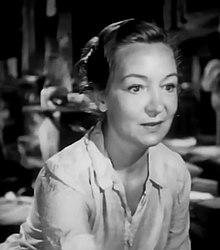
Dame Alice Ellen Terry was a leading English actress of the late 19th and early 20th centuries.

Thomas Henry Sargent, known professionally by his stage name Max Miller and billed as The Cheeky Chappie, was an English comedian often considered the greatest stand-up of his generation. He came from humble beginnings and left school at the age of twelve. At the outbreak of the First World War, he volunteered for the army. During his time in the forces, he started a troupe concert party. On leaving the army, he took up work as a light comedian, dancer, and singer. He toured extensively, appearing in variety, revues and by the early 1930s reached the top of the bill in the large music halls including the London Palladium.

Beatrice Gladys Lillie, Lady Peel, known as Bea Lillie, was a Canadian-born British actress, singer and comedic performer.

Evelyn Laye was an English actress and singer known for her performances in operettas and musicals.
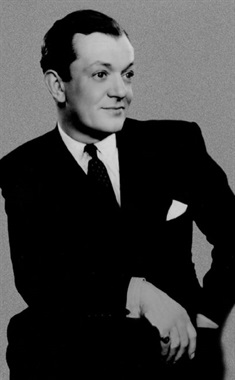
Charles Robert William Howes was a British entertainer who was a leading musical comedy performer in London's West End theatres in the 1930s and 1940s.

Julia Emilie Neilson was an English actress best known for her numerous performances as Lady Blakeney in The Scarlet Pimpernel, for her roles in many tragedies and historical romances, and for her portrayal of Rosalind in a long-running production of As You Like It.
Weston's Music Hall was a music hall and theatre that opened on 16 November 1857 at 242-245 High Holborn in London, England. In 1906, the theatre became known as the Holborn Empire.
George Black was a British theatrical impresario who controlled many entertainment venues during the 1930s and 1940s and was a pioneer of the motion picture business.

This Year of Grace is a revue with words and music by Noël Coward, produced by Charles B. Cochran in London in March 1928 and by Cochran and Archie Selwyn in New York in November of that year. The London cast was headed by Sonnie Hale, Jessie Matthews and Maisie Gay, and Tilly Losch choreographed and performed in dance sequences. Coward himself, together with Beatrice Lillie, starred in the New York production. The show was successful both in the West End and on Broadway, earned mostly strong notices, and introduced some of Coward's enduring songs. After an Australian tour in 1929 it was not revived, although several of the songs have been incorporated in later stage compilations of Coward's works and were performed by Coward in his cabaret appearances and recordings.

Irene Muriel Browne was an English stage and film actress and singer who appeared in plays and musicals, including No, No, Nanette. Later in her career, she became particularly associated with the works of Noël Coward and acted in films.
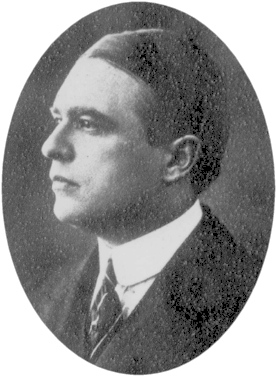
Eugène André Maurice Charlot was a French-born impresario known primarily for the musical revues he staged in London between 1912 and 1937. He later worked as a character actor in numerous American films.
Constance Emmeline Carpenter was an English-born American film and musical theatre actress.
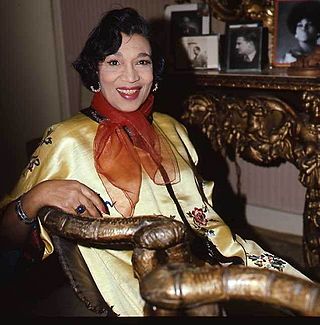
Elisabeth Margaret Welch was an American singer, actress, and entertainer, whose career spanned seven decades. Her best-known songs were "Stormy Weather", "Love for Sale" and "Far Away in Shanty Town". She was American-born, but was based in Britain for most of her career.
"I Went to a Marvellous Party" is a song with words and music by Noël Coward, written in 1938 and included in his Broadway revue, Set to Music, in which it was performed by Beatrice Lillie in January 1939. Lillie introduced the song to London audiences in June of that year in cabaret at the Café de Paris. It was later included in the revues All Clear (1939), Cowardy Custard (1972) and Oh, Coward! (1972). Both Lillie and Coward made recordings of the song, which is among his most popular.

Gertrude Kingston was an actress, an English actor-manager and artist.

Margaret Bannerman was a Canadian actress. She is known for her work in the English films The Gay Lord Quex, Lady Audley's Secret and Hindle Wakes. She had a successful career on stage, appearing in revues and light comedy.
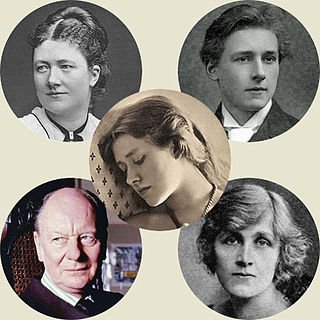
The Terry family was a British theatrical dynasty of the late 19th century and beyond. The family includes not only those members with the surname Terry, but also Neilsons, Craigs and Gielguds, to whom the Terrys were linked by marriage or blood ties.

Gwendoline "Gwen" Farrar was an English duettist, cellist, singer, actress and comedian.

Alice Wood, known professionally as Alice Lloyd or Alice Hall, was a British music hall artist who was also popular in American vaudeville. She was the younger sister of Marie Lloyd.
Marie Beatrice Binda, known professionally as Mademoiselle Beatrice, born in Italy and with aristocratic connections in France, was an actress in England and founder of a touring theatre company.
